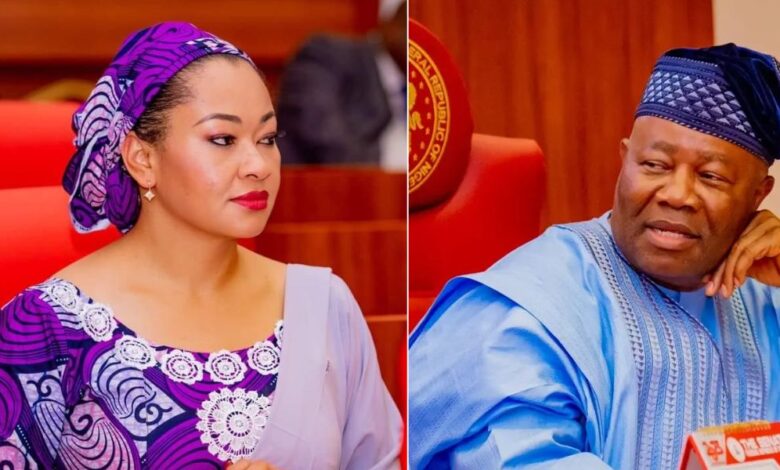Fresh Crisis in the Senate: Senator Natasha Accuses Akpabio-Led Leadership of Political Suppression

4o
The ongoing crisis in the Nigerian Senate has escalated as Senator Natasha Akpoti-Uduaghan has made a fresh allegation against Senate President Godswill Akpabio and his leadership. This latest development intensifies an already heated dispute that has been unfolding within the upper chamber of the National Assembly.
Background of the Crisis
The conflict began when Senator Natasha Akpoti-Uduaghan, who represents Kogi Central, accused Senate President Akpabio of sexual harassment. The allegation, which dates back to December 8, 2023, sparked widespread controversy and divided public opinion. While Akpabio denied the claims, calling them baseless, Natasha pursued the matter further by petitioning the Senate Committee on Ethics, Privileges, and Public Petitions, as well as seeking international intervention.
Escalation and Natasha’s Suspension
The dispute reached a turning point on February 20, 2025, when a confrontation broke out over the relocation of Natasha’s seat in the Senate chamber. The disagreement between her and Akpabio led to accusations that she was acting in defiance of Senate rules. Shortly after, the Senate’s Committee on Ethics and Privileges recommended disciplinary action against her.
On March 6, 2025, the Senate voted to suspend Senator Natasha for six months, citing misconduct, unruly behavior, and disrespect to the Senate leadership. The suspension also meant she was stripped of her salary, office access, and security details.
Fresh Allegations Against Akpabio’s Leadership
Following her suspension, Senator Natasha Akpoti-Uduaghan has now made new allegations against the Akpabio-led Senate leadership. She claims that her suspension was a politically motivated attempt to silence her from exposing corruption and abuse of power within the Senate.
According to her, the leadership has been involved in acts that undermine democracy and suppress opposition voices, particularly those advocating for transparency and accountability. Natasha has also accused the Senate leadership of selectively targeting female lawmakers and using institutional mechanisms to intimidate critics.
Additionally, she has taken legal action against Akpabio, filing a ₦100 billion defamation lawsuit. She alleges that the Senate President and his allies have orchestrated a smear campaign against her to discredit her reputation.
Public and Political Reactions
The crisis has sparked widespread reactions from different quarters:
- Women’s Rights Groups & Civil Society Organizations: Many groups have condemned the Senate’s actions, arguing that Natasha’s suspension is an attack on women in politics. Protesters, under the banner “We Are All Natasha,” have called for her immediate reinstatement.
- International Organizations: Natasha has taken her case to the United Nations Inter-Parliamentary Union (IPU), alleging that she is being unfairly targeted for exposing misconduct.
- Government Officials: The Minister of Women Affairs and Social Welfare, Imaan Sulaiman-Ibrahim, has expressed concerns over the matter and is seeking dialogue with the Senate leadership to resolve the crisis.
Senate’s Response and Current Status
Despite the mounting pressure, the Senate has ruled out any possibility of reversing Natasha’s suspension. Akpabio, on his part, has dismissed her new allegations as baseless and an attempt to gain public sympathy. He insists that her suspension was based on procedural breaches and not political victimization.
As the crisis continues, the situation raises critical questions about governance, accountability, gender representation in Nigerian politics, and the treatment of whistleblowers within the country’s legislative system.




